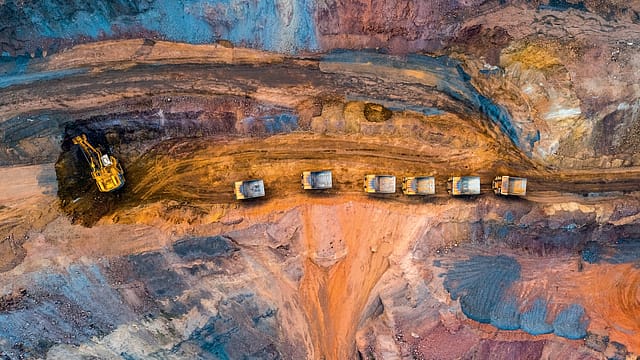Govt eyes rare earth minerals from Brazil, Dominican Republic
ADVERTISEMENT

The Ministry of Mines has initiated the process of entering into government-to-government (G2G) deals with Brazil and the Dominican Republic for developing cooperation in the field of rare earth minerals.
The broad objectives of these Memoranda of Understanding (MoUs) are to provide an overarching framework for cooperation in research, development and innovation in mining, with a particular focus on rare earth elements and critical minerals, the government stated.
Critical minerals such as lithium, graphite, cobalt, titanium, rare earth elements etc. are demand-intensive due to their strategic uses in various sectors such as electric vehicles, renewable energy and defence.
The government on Wednesday said that the ministry of external affairs is actively engaging with relevant stakeholders to alleviate the challenges arising from export restrictions on rare earth magnets imposed by certain countries. China, the biggest exporter of rare earth magnets to India, has imposed curbs since April 2025.
“There have been continued engagements at bilateral and multilateral level to increase cooperation in peaceful uses of nuclear energy, including in rare earth minerals and related technologies. These efforts aim to mitigate disruptions in the supply chain and safeguard the interests of Indian importers,” the government said.
Meanwhile, the Atomic Minerals Directorate for Exploration and Research (AMD), a constituent unit of the Department of Atomic Energy (DAE), is carrying out exploration and augmentation of minerals of rare earth group elements along the coastal, inland, riverine placer sands as well as in hard rock terrains in several potential geological domains of the country.
Additionally, the Geological Survey of India (GSI) has augmented 482.6 million tonnes of resources of rare reath elements ore at various cut-off grades in 34 exploration projects.
To be clear, Indian companies don’t have the capacity to process rare earth minerals yet.
The Ministry of Mines had earlier set up Khanij Bidesh India Ltd (KABIL), a joint venture company, with the objective to identifying and acquiring overseas mineral assets that hold critical and strategic significance, specifically targeting minerals like lithium, cobalt, and others.
KABIL has already signed an Exploration and Development Agreement with CAMYEN, a state-owned enterprise of Catamarca province of Argentina for Exploration and mining of Five Lithium Blocks in Argentina. KABIL is also having regular interactions with Critical Mineral Office in Australia with the primary objective of acquiring critical and strategic mineral assets.
In the interest of developing bilateral cooperation with countries having rich mineral resources, the ministry of mines has entered into bilateral agreements with the governments of a number of countries such as Australia, Argentina, Zambia, Peru, Zimbabwe, Mozambique, Malawi, Cote D’Ivoire and International organisations such as International Energy Agency (IEA).
The ministry is also engaging on various multilateral and bilateral platforms such as Minerals Security Partnership (MSP), the Indo-Pacific Economic Framework (IPEF), and initiative on Critical and Emerging Technologies (iCET) for strengthening the critical minerals value chain.
The Union Cabinet had launched of the National Critical Mineral Mission (NCMM) in January 2025 with an expenditure of ₹16,300 crore. The Mission will be implemented over a period of seven years, from FY 2024-25 to 2030- 31 with a budgetary support of ₹2,600 crore.
The Mission aims to secure a long-term sustainable supply of critical minerals and strengthen India’s critical mineral value chains encompassing all stages from mineral exploration and mining to beneficiation, processing, and recovery from end-of-life products.
To strengthen the domestic processing capabilities for critical minerals, under the National Critical Mineral Mission (NCMM), ₹500 crore has been allocated for developing processing parks, ₹1,500 crore has been allocated for incentive scheme for recycling of critical minerals from secondary sources. Pilot projects for mineral recovery have been approved with an allocation of ₹100 crore. Besides, to foster innovation the Ministry of Mines is providing funding R&D institutions, start-ups, and MSMEs.